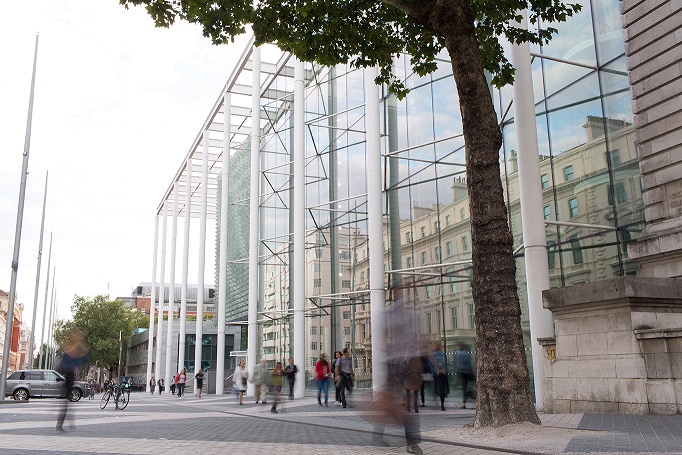Three Imperial researchers elected Fellows of the Royal Society

@royalsociety has granted fellowship to three scientists at @imperialcollege
The academics – who work on sensors for healthcare, organic semiconductor materials, and the thermodynamic behaviour of complex fluids – have been elected to join the ranks of the UK’s most eminent scientists as part of the 2020 election of 51 new fellows.
Molly, Iain and George have made outstanding contributions to science and had exceptional impacts on their fields. This is a very well-deserved recognition of their ground-breaking research. We are very proud of their achievements.Professor Ian WalmsleyProvost, Imperial College London
Professors Molly Stevens, Iain McCulloch and George Jackson join more than 70 other members of Imperial staff who are permitted to use the letters FRS after their name.
Fellowships are given to distinguished scientists by the Royal Society in recognition of “contributions to science, both in fundamental research resulting in greater understanding, and also in leading and directing scientific and technological progress in industry and research establishments.”
Professor Ian Walmsley, Provost of Imperial, said: “I’m delighted that three of our colleagues have been elected as Fellows of the Royal Society. Molly, Iain and George have made outstanding contributions to science and had exceptional impacts on their fields. This is a very well-deserved recognition of their ground-breaking research. We are very proud of their achievements.”
Professor Molly Stevens
Molly Stevens is Professor of Biomedical Materials and Regenerative Medicine in the Departments of Materials and Bioengineering and Research Director for Biomedical Material Sciences at Imperial. Her work focuses on materials-based approaches for tissue regeneration, and the diagnosis, prevention, and tracking of diseases.
Professor Stevens recently received funding from the President’s Excellence Fund to accelerate her work in developing a test for COVID-19, and has previously worked to develop inexpensive point-of-care diagnostics for infectious diseases in developing countries.
She said: “All my research stems from a strong team-based approach and I am delighted at this recognition, which reflects the excellence of our group of talented students, postdocs and collaborators.”
Professor Iain McCulloch
Iain McCulloch is Professor of Polymer Materials in the Department of Chemistry at Imperial and Director of the KAUST Solar Center at the King Abdullah University of Science and Technology, Saudi Arabia. His work focuses on the development of high-performance organic semiconductor materials.
These materials can be used, for example, in transparent solar cells for smart windows, sensors for biologically relevant metabolites such as glucose and lactate, and to produce hydrogen from water using solar irradiation. As well as reaching new feats of efficiency, the materials can also be designed to be printed, like inks, making them simpler to process into films.
He said: “It is a huge honour to be elected as a Fellow of the Royal Society. I know it is a cliché, but it is completely true that science is a team endeavour, and success arises when you are lucky enough to work with great team members, colleagues and collaborators. “
Professor George Jackson
George Jackson is Professor of Chemical Physics in the Department of Chemical Engineering at Imperial. His research involves the development of molecular models to describe the thermodynamic properties and phase behaviour of complex fluids, with a focus on applications ranging from pharmaceuticals and cosmetics to gas extraction and greenhouse gas emissions.
Professor Jackson is at the forefront of the new discipline of molecular systems engineering, combining fundamental physical understanding with engineering knowhow in the intelligent molecular design and optimisation of processes and products.
He said: “This is simply wonderful news. My election as a Royal Society Fellow would of course not have been possible without the hard work, support an ingenuity of my exceptional graduate students, postdoctoral researchers, and collaborators during my time at Oxford, Cornell, Sheffield, Seville, Mexico, and Imperial.”











Responses